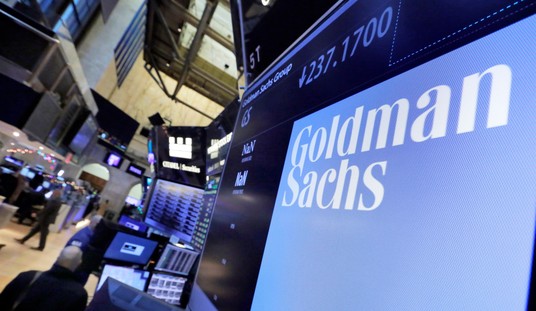Last week, Citigroup announced an initiative to finance $100 billion in renewable energy investments to fight climate change and fund other environmental protection projects. This announcement comes after the bank reached a previous $50 billion goal to invest in green projects set in 2007.
Citigroup’s CFO Michael Corbat claimed that the undertaking was a simple investment, not philanthropy. However, the strategy for this initiative was developed with assistance from the environmental advocacy group Ceres.
Ceres has a long history of supporting the liberal environmental agenda, most notably cap-and-trade legislation. The work done by Ceres is made possible by significant financial support from its network of liberal corporate supporters, especially in the banking industry: Bank of America and Wells Fargo are listed as Ceres members in addition to Citigroup. The organization’s membership also includes other types of companies like Coca-Cola, Levi Strauss and CVS; all of which have a history of taking liberal positions on various issues.
Conservatives should take note of a special project coordinated by Ceres called Businesses for Innovative Climate and Energy Policy, or BICEP. This coalition of companies including some of the largest food and snack companies like Kellogg’s, General Mills, Mars and Nestle is a primary political action arm by which Ceres advocates on policy.
The BICEP partnership has outlined eight goals for a carbon trading system:
- Reduce greenhouse gas emissions at least 25 percent below their 1990 levels by 2020, and 80 percent below 1990 levels by 2050.
- Establish a cap-and-trade carbon system with pollution allowances.
- Create policies that double the historic rate of energy efficiency improvement.
- Promote transit development and fuel-efficient vehicles such as electric hybrids.
- Increase investment in renewable energy, carbon capture and storage technology. Eliminate fossil fuel industry subsidies.
- Invest in “green-collar” jobs in low-income communities.
- Adopt a national standard that requires 20 percent of electricity to be generated from renewable energy sources by 2020 and 30 percent by 2030.
- Only allow building of coal-fired power plants that capture and store carbon emissions.
Not surprisingly, Citigroup would see a considerable return on its 10-figure investment if some of BICEP’s policy goals were implemented. In 2013, the banking giant helped finance the Solar Star photovoltaic project in Southern California where the state requires electricity providers to procure 33% of energy from so-called renewable sources similar to the goal outlined by the partnership. Investing in solar energy seems to be a lucrative business decision when demand is increased by government mandate. Furthermore, as the nation’s top financier of coal-fired power plants, the regulations suggested by BICEP would decrease the potential competition for the coal supply from new plants because of the regulatory barriers to entry.
The other companies involved with Ceres and BICEP have incentive to prevent market competition as well. Perhaps this is why the BICEP coalition supported federal legislation in 2010 that called for “an auction of carbon-emission permits” that would “provide billions in incentives for reduced greenhouse gasses.” It’s not much of a step to assume that smaller businesses wouldn’t compete financially against the deep pockets of these major corporations.
In light of the recent memory of the Solyndra scandal, conservatives should be wary of the triangular relationship between environmental policy advocates, big business and government. Those pushing for increased government regulation on energy production usually seem to have other motives, often at the expense of the taxpayers. Cheap, clean energy is a laudable goal, but with the amount of money at stake in the industry business, it’s important to pay attention to where dollars actually go.
Chris Walker is the Executive Director of 2nd Vote, a conservative shopper app. To find out more, download the free app or visit 2ndVote.com.













Join the conversation as a VIP Member